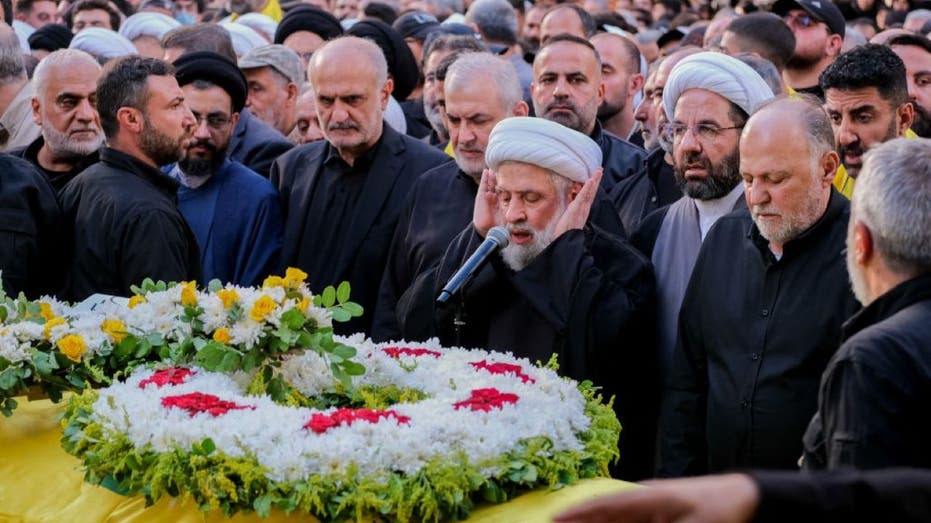
Iran’s proxy terrorist group Hezbollah appointed Naim Qassem as its leader this week following the death of its previous chief, Hassan Nasrallah.
The Lebanese terrorist group Hezbollah announced on Wednesday that it had selected a new leader to succeed Secretary General Hassan Nasrallah, who was killed in an Israeli airstrike in September.
The new leader, Naim Qassem, had served for decades as Nasrallah’s second in command. He has also served as a major spokesman for the group this year as Hezbollah’s conflict with Israel has grown more severe.
Nasrallah was killed on Sept. 27, and the man considered his most likely successor, Hashem Safieddine, was killed in another strike just weeks later.
Israel wasted no time in threatening Qassem and calling on him to cease hostilities in a statement.
HEZBOLLAH HIDING MORE THAN $500M IN GOLD, CASH UNDER HOSPITAL IN LEBANON, IDF SAYS
“His tenure in this position may be the shortest in the history of this terrorist organization if he follows in the footsteps of his predecessors Hassan Nasrallah and Hashem Safieddine,” the Israeli government’s Arabic account wrote on X.
“There is no solution in Lebanon except to dismantle this organization as a military force,” it added.
HEZBOLLAH GENERATES FUNDS FOR ACTIVITIES UNDER THE GUISE OF A NON-PROFIT: ISRAELI OFFICIALS
Qassem’s appointment comes amid rising tensions between Israel and Iran, who have exchanged several direct attacks in recent weeks. Hezbollah has long served as an Iranian proxy group and has suffered months of airstrikes by Israeli forces.
Meanwhile, Iran vowed on Monday to “use all available tools” in response to Israel’s strategic airstrikes against the country despite a warning from the Israel Defense Forces (IDF) to stand down or pay a “heavy price.”
“[Iran] will use all available tools to deliver a definite and effective response to the Zionist regime,” Iranian Foreign Ministry spokesperson Esmaeil Baghaei declared during a televised news conference, according to Reuters.
Israeli air force jets struck 20 targets across Iran early Saturday during the operation, named “Days of Repentance.” The operation unfolded with an initial assault on Iran’s air defense systems, followed by targeted strikes by more than 100 airplanes on missile and drone bases and weapons production sites.
President Biden told reporters Saturday that he met with intelligence community officials following the Israeli strikes, saying in a statement, “my hope is this is the end.”
Reuters contributed to this report.